By Sarah Weld
Berkeley Law recently welcomed eight new hires to its in-house clinical program — seven teaching fellows and one supervising attorney. Their arrival, which includes four new positions, will expand the growing program’s already significant outreach to marginalized communities and individuals and help offer more valuable hands-on training for 110 in-house students, its largest fall cohort yet.
New Business Community Law Clinic
Bilingual business adviser
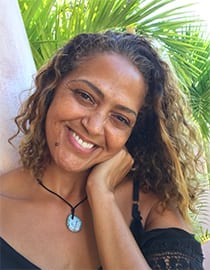
Kelly Woolfolk LL.M. ’14, who participated in the New Business Practicum (now the New Business Community Law Clinic) as an LL.M. student in 2014, returns as a supervising attorney. She has extensive experience as a transactional attorney in the entertainment industry and will help expand the clinic’s work with Spanish-speaking entrepreneurs.
“Experiential education is a high-caliber resource which too few students are afforded,” she says. “It can make the difference in whether burgeoning careers thrive or sputter. I’m honored to join the clinic to support and inspire students in service to local communities.”
After moving to the Dominican Republic in 2018, Woolfolk helped clients with international real estate transactions and business development and started a YouTube channel about her expat experience. She has published on negotiations in the Berkeley Journal of International Law, and the impacts of international tax policies on U.S. and Latin American economic development.” Her essay “Finding Home” was published in the anthology, All the Women in My Family Sing in 2018. She has a B.A. from Spelman College and a J.D. from Howard University School of Law.
Policy Advocacy Clinic
Value of mentorship
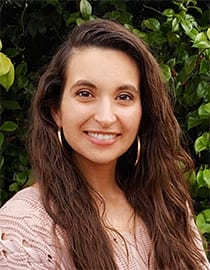
Anavictoria Avila joins the Policy Advocacy Clinic after working at the East Bay Community Law Center as an education advocate and clinical instructor. She supervised law students while advocating for youth in special education, expulsion, and juvenile court proceedings.
“Mentorship is very important to me. I look forward to working with teams of law and public policy students to address systemic racial, economic, and social injustice through innovative and solution-oriented strategies,” says Avila, who will bolster the clinic’s national campaign to eliminate debt imposed on youth and families by the juvenile court system. “I know firsthand through my family’s experience how economic oppression debilitates and affects all aspects of a family’s well-being, especially for families going through the traumas of juvenile court proceedings.”
Avila’s clinic experience as a student at Northwestern Law allowed her to work on direct representation, community partnership, and policy advocacy with professors “who treated me as a colleague from day one.” Previously, she was the outreach coordinator for the Illinois Coalition for the Fair Sentencing of Children at Northwestern Law’s Children & Family Justice Center. She’s a 2018 graduate of Northwestern Law and earned her B.A. from UC Berkeley.
Working for community justice
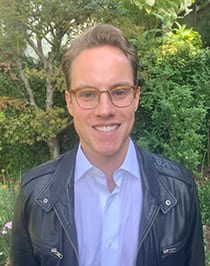
Gus Tupper ’20 returns to the Policy Advocacy Clinic as a clinical teaching fellow. As a law student, Tupper worked with the clinic to launch a juvenile fee repeal project in Oregon and also argued the civil rights case Chavez v. Robinson, 18-36083, as a member of the Ninth Circuit Practicum’s inaugural cohort.
This year, Tupper will work with organizers, young people, and local groups in the Northwest and Mountain West to end racist and regressive financial penalties in the juvenile system. He is interested in racial and economic justice, social movements, and the political economy of law. He is especially interested in how law can make space for community responses to harm outside the legal system. His first article, “Breaking California’s Cycle of Juvenile Transfer,” is forthcoming in California Legal History.
“The clinic and the practicum allowed me to work with real clients toward tangible goals and also gave me unique experience building something,” Tupper says. “I am most looking forward to connecting with people working for justice in their communities, and to scoring wins that reduce the impact of the juvenile system on poor kids, Black kids, and kids of color.”
Dedicated to debt-free justice
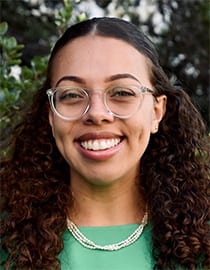
Rachel Wallace M.P.P. ’20 returns to the Policy Advocacy Clinic, but in a new role as teaching fellow. She spent two semesters as a clinic student working on debt-free justice projects in the southern United States while at Berkeley’s Goldman School of Public Policy, where she received a master’s degree this year.
“The clinic’s work aligns with my personal commitment to eradicating racialized wealth extraction through the imposition of monetary sanctions. I am excited to continue to work on the projects I had a hand in as a student, especially our state work in the South and potential legislative pushes this year,” says Wallace, who values her clinic experience for the expertise she gained with hands-on legislation, and the chance to interact with community leaders across the country.
Her policy interests include how monetary sanction reform fits into a broader vision of non-carceral community justice, and the intersection of re-entry and civic engagement. Most recently, she completed a landscape analysis on reimagining traditional restitution practices for her master’s thesis. She completed her undergraduate studies at the University of Notre Dame.
Removing paths to poverty
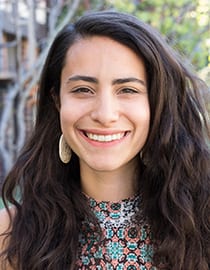
Maiya Zwerling M.P.P ’20 rejoins the Policy Advocacy Clinic as a teaching fellow — she was a clinic student last year — and will focus on its role in the national campaign to eliminate racially discriminatory fees and fines imposed on youth and their families. Before attending UC Berkeley’s Goldman School of Public Policy, she worked as the national organizing manager for the Friends Committee on National Legislation. As a lobbyist, campaigner, and grassroots organizer, she led campaigns to build public support for the Iran deal, enact federal sentencing reform, reestablish congressional authority over war-making, and protect social safety net funding.
“I am thrilled to bring my passion for front-loading strategic planning to support the development of a national campaign to abolish fines and fees that target young people,” Zwerling says. “In the face of a global pandemic and political awakening for so many, now is the time to broadly invest in work that unravels and transforms systems that trap black and brown communities in poverty.”
Zwerling earned a master’s degree from the Goldman School this year and a B.A. from Bryn Mawr College in 2013.
International Human Rights Law Clinic
Defending global human rights
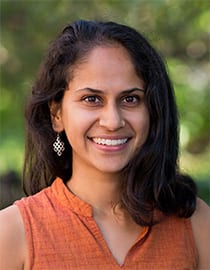
Astha Sharma Pokharel joins the International Human Rights Law Clinic after working as a Bertha Justice Fellow at the Center for Constitutional Rights. There, she worked to defend the constitutional rights of advocates for environmental justice and for justice in Palestine. She also represented Palestinian landowners and residents of Cancer Alley in Louisiana resisting the petrochemical industry, and helped challenge the continued detention of immigrants during the COVID-19 pandemic.
“I’m looking forward to thinking critically about how to do transformative and anticolonial transnational justice work, particularly as law students and lawyers positioned in the global North,” says Sharma Pokharel, who participated in two clinics during law school. “I really appreciate the clinic’s focus on exposing U.S. actors’ responsibility for human rights violations, both domestically and internationally, which in turn exposes the hypocrisy of any narrative that perceives human rights violations as something that only happens ‘over there’ in the global South.”
After completing her J.D. at New York University in 2017, Sharma Pokharel worked at Namati, an organization focusing on legal empowerment. During law school, she was a student advocate in the Global Justice Clinic and in the Immigrant Rights Clinic, representing individuals in deportation proceedings.
Samuelson Law, Technology & Public Policy Clinic
Clinic sisterhood
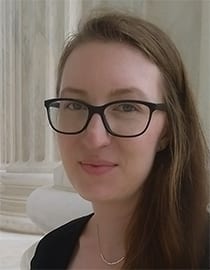
Gabrielle Daley, who joins the Samuelson Law, Technology & Public Policy Clinic, previously worked as an associate at Kissinger & Fellman, where her practice focused on municipal telecommunications. Daley received her J.D. from the University of Colorado Law School in 2018, where she was a member of the Colorado Technology Law Journal. She also spent a summer as a legal policy intern at Public Knowledge.
Daley says her valuable experience as a clinic student in law school drew her to the position at Berkeley.
“I had the great privilege of being a student attorney in the Samuelson-Glushko Technology Law & Policy Clinic. It is an honor to be joining the sister clinic here at Berkeley,” says Daley, who received her bachelor’s degree from Colorado State University. “We prepared and presented a study on how international copyright law impacts persons with disabilities to the World Intellectual Property Organization. My time in the clinic taught me not only about collaborating with my colleagues and professionalism, but about the inspirational impact of public interest lawyering.”
Coming home

Julie DeVries ’17 joins — or actually rejoins — the Samuelson Law, Technology & Public Policy Clinic, where as a Berkeley Law student she worked on a body camera project with the ACLU of Massachusetts. Most recently, she was an assistant federal public defender for the Northern District of California, and clerked for a federal judge and a state judge.
“Berkeley Law is an incredible place, where students and faculty are mission-focused, kind, curious, and open to change. I can’t think of a better place to work,” DeVries says. “The Samuelson Clinic consistently takes on fascinating and important cases. I’m particularly excited about the clinic’s expanding civil liberties and criminal justice work and about the talented faculty I’ll get to learn from.”
During law school DeVries was an Academic Skills Program tutor, a Post-Conviction Advocacy Program student advocate, and a California Law Review senior articles editor. She also interned at the ACLU of Massachusetts and the Federal Public Defender’s Office, and spent several years as a journalist and criminal defense paralegal. She received her undergraduate degree from Columbia University.